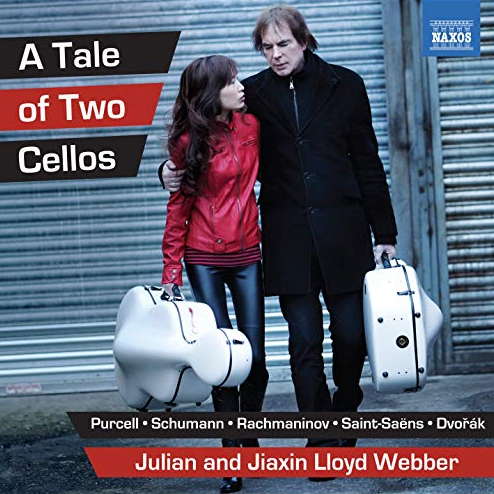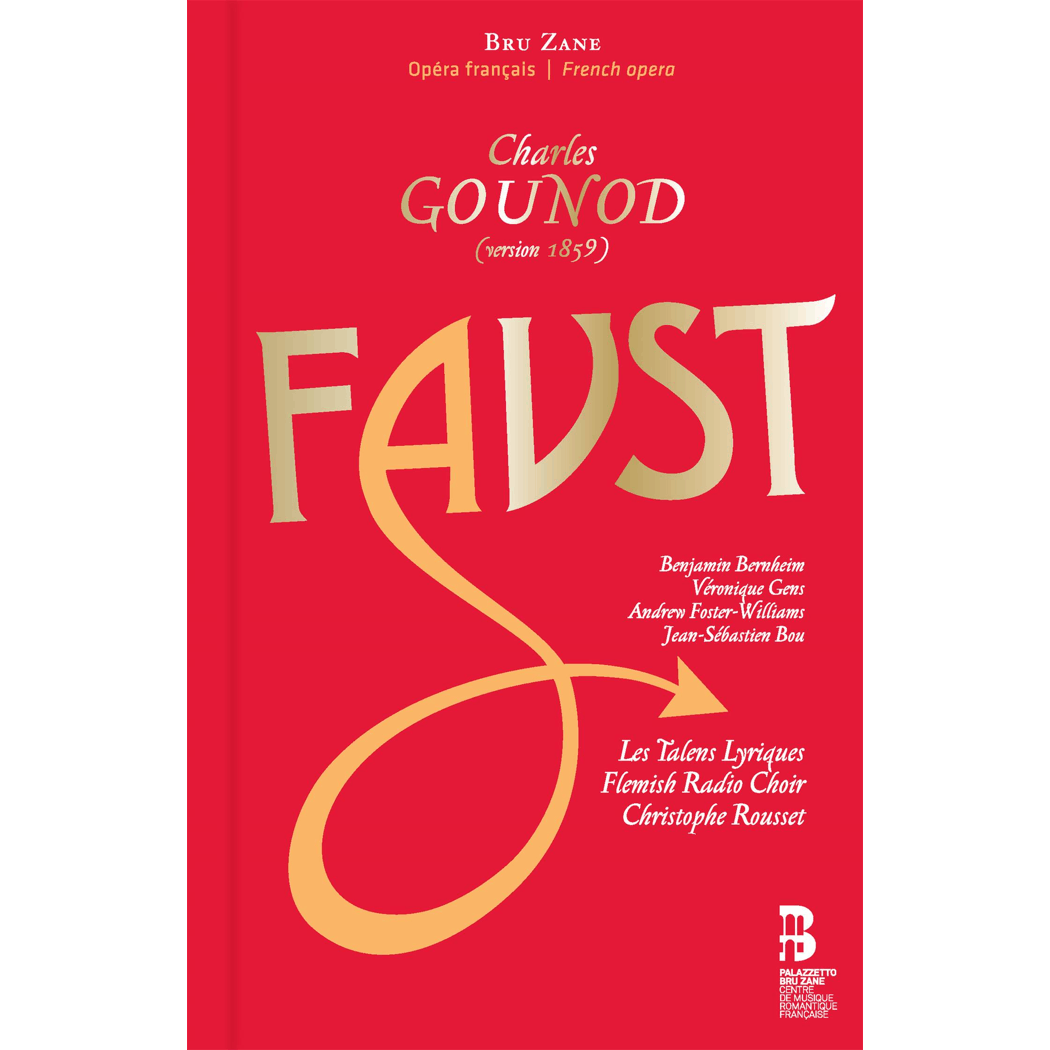 SPONSORED: CD Spotlight. Uncommon Piquancy - Music for two cellos, heard by Howard Smith.
SPONSORED: CD Spotlight. Uncommon Piquancy - Music for two cellos, heard by Howard Smith.
All sponsored features >>
PROVOCATIVE THOUGHTS: 
The late Patric Standford may have written these short pieces deliberately to provoke our feedback. If so, his success is reflected in the rich range of readers' comments appearing at the foot of most of the pages.
- Peterloo
- Esa-Pekka Salonen
- Lynn Norris
- Delos International
- sexuality
- double bass music
- John Jeffreys
- Copland: Quiet City

Gounod's First Faust of 1859
GIUSEPPE PENNISI listens to
Christophe Rousset's new recording from Bru Zane
'Everything is lighter, softer, more sensual.'
Everyone (or almost everyone once called 'a cultured person') knows Goethe's 'First Faust' (also called the Urfaust). It was written between 1773 and 1775, inspired by the Elizabethan tragedy of Marlowe and with a Sturm und Drang imprint. Few know that Gounod's Faust, as commonly represented, is the 1869 version prepared at the end of the Second Empire, for the Paris Opéra. In this version, based on the stylistic canons of the grand opèra, Faust circulates all over the world and competes with Bizet's Carmen as the world's most staged and performed French work.
There is, however, a first Gounod Faust that had been staged ten years earlier. It is rarely represented also because the autograph has been recently found; until now, there was no proper critical edition. I have a vague memory of a production in the 1970s, at the Hartke Theater at the Catholic University of Washington; Father Hartke (who ran the University's school of music and drama for years) loved to have students experiment with rarely played scores. He was able to get donations of disused sets and costumes from the New York Metropolitan Opera House. My memory is pale and influenced by the very bad French diction of the young American singers/actors. Diction is all the more important since the Faust of 1859 is not a first version or first draft of that of ten years later, but a completely different work that follows the canons of the opéra comique and in which the musical numbers are connected by spoken dialogues. It was not a philological operation but rather a reconstruction based on notes.
Now, thanks to the work of the Bru-Zane-Centre de Musique Romantique Française, we can enjoy this 1859 Faust. It is presented in an elegant volume of about two-hundred pages with essays, excerpts from Gounod's memoirs and, of course, the libretto, as well as reproductions of prints of the first performance. On the front and back covers of the book, there are three CDs with the philological and therefore integral edition of the work. From the first bars, it is felt that we are struggling with two different works. Listening to the introduction, there is almost nothing of the grand opéra to which we are accustomed when listening to Gounod's 1869 Faust. Everything is lighter, softer, more sensual.
Listen — Gounod: Introduction (1859 Faust)
(CD1 track 1, 0:01-1:00) © 2019 Palazzetto Bru Zane :
The artistic director of the Palazzetto Bru-Zane Centre de Musique Romantique Française made a right choice to rely on Christophe Rousset and his Talens Lyriques, as well as the very good choir of the Flemish Radio; they are usually engaged especially in music of the eighteenth or early nineteenth century). The result is more delicate and with better-suited sounds. Many numbers are different from those of 1869, such as the Act I trio, or the Church Scene in Act III:
Listen — Gounod: Terzetto (1859 Faust, Act I)
(CD1 track 4, 3:03-3:57) © 2019 Palazzetto Bru Zane :
Listen — Gounod: Scene de L'église (1859 Faust, Act III)
(CD3 track 9, 1:55-2:51) © 2019 Palazzetto Bru Zane :
The protagonist, the young Bejamin Bernheim is, for me, a real discovery - I remember that the Faust 1869 usually entrusted to 'spinto' tenors such as Geddas, Corelli, Domingo and Bernheim is, instead, a lyrical French tenor who studied in Geneva and was part for years of the Zurich Opera company. From the entry aria 'Salut! demeure', one can feel how he solves the difficult and high notes.
Listen — Gounod: Salut! demeure chaste et pure (1859 Faust, Act II)
(CD2 track 3, 1:02-2:01) © 2019 Palazzetto Bru Zane :
Andrew Foster Williams as Méphistophélès is a sardonic and ironic devil. His French diction is perfect though he is the only non-native-French member of the cast.
Listen — Gounod: Sérénade (1859 Faust, Act III)
(CD3 track 11, 0:00-0:47) © 2019 Palazzetto Bru Zane :
Among the protagonists, Véronique Gens disappoints a little. I remember her excelling in so many roles in Aix-en-Provence and in Munich: the part requires a very young Marguerite, almost adolescent, and it is felt that she no longer is.
Listen — Gounod: Duo (1859 Faust, Act IV)
(CD3 track 20, 2:52-3:44) © 2019 Palazzetto Bru Zane :
Jean-Sébastien Bon's Valéntin is more than good. Juliette Mars' Siebel, Ingrid Perucche's Dame Marthe and Anas Séguin's Wagner are good.
In short, this is a recording and a book to listen to and study.
Copyright © 10 December 2019
Giuseppe Pennisi,
Rome, Italy

CD INFORMATION - CHARLES GOUNOD: FAUST (1859 VERSION)
FURTHER INFORMATION - PALAZZETTO BRU ZANE
FURTHER INFORMATION - CHARLES GOUNOD


